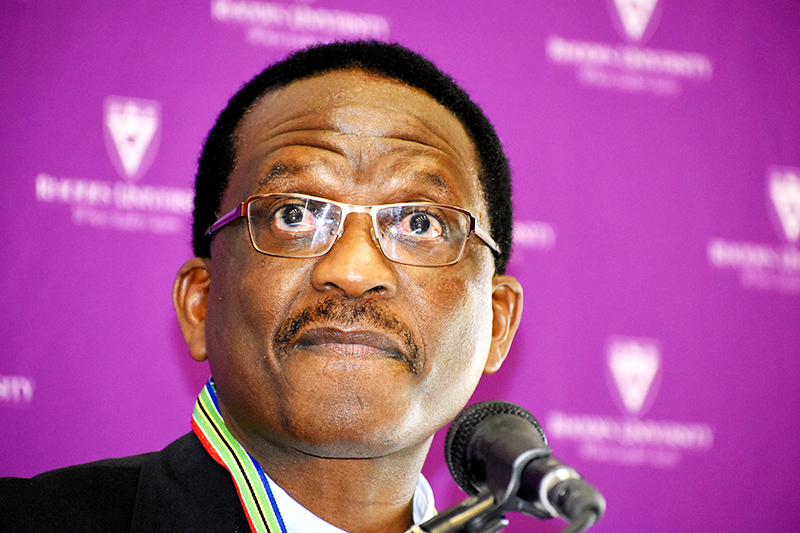
STAFF REPORTER
Sustainability, social justice, local responsiveness and global competitiveness emerged as dominant themes at a ‘productive’ three-day multi-sectoral Rhodes University summit, which ended on Sunday afternoon.
Students, workers, academics, members of the alumni, management and representatives from business, municipality and the community of Makana met last weekend to reflect and engage on the transformation agenda of the 113-year-old institution. The summit followed six months of intensive internal engagements on transformation.
The curriculum, income and financial management, institutional identity, student matters, staff and institutional culture all came under intense interrogation in plenary and breakaway discussions.
In his closing remarks at the conclusion of “an open, robust and progressive engagement” the chairperson of the University Council, Vuyo Kahla, highlighted “transformation and decolonisation as the two most critical requirements for sustainability of Rhodes University into the future”.
“It is important that we continue the engagement about how we reach the point where we can confidently define our institution as transformed. However, we also need to appreciate and isolate certain issues, which cannot be delayed. Chief among these are issues of social justice,” Kahla said.
The summit agreed to refer the “emotive” issue of the name of the University to its Council to “design, within a six-month timeframe, a process that will enable the University to resolve the issue of the future of its name”. No decision was taken regarding whether the name should be retained or changed. Council was mandated to deal with the matter taking into account inputs from stakeholders and all related factors, which are pertinent to such a decision.
“We must find a way to deal with this matter within the set timeframes. This issue has to be dealt with responsibly, taking into account our commitment to cohesion and building an even better University than the one we have now. We cannot simply implement a smash and burn approach. We will discharge our responsibility in this regard while drawing on everyone’s wisdom regarding how to resolve this complex issue,” Kahla said.
“The bottom line is, we must seek to build a University which we all can be proud of, a University which continues to lead, and a University which continues to punch way above its weight in producing excellence in all fields of endeavour.”
Kahla cautioned that while protest was allowed “and even encouraged” at the University, there was nothing progressive and radical about harassment, insults and violation of rights of others.
“Intolerance for unlawfulness should not distract from open and robust engagement which we must nurture,” he said.
SRC President, Rholihlahla Mabaso, called for the decolonisation of the curriculum and for education that benefits the African child. “From now on we have an opportunity to work together, put our differences aside. Our rallying call should be decide, implement and execute.”
Vice Chancellor Sizwe Mabizela hailed the summit as a great success in the project to reimagine the University. He commended participants for productive engagement and the renewed sense of optimism that it brought.
“From now on, our core organising principles are sustainability in every facet of our university life – in terms of finances, environment, teaching and learning, research, community engagement, facilities operations, resource utilisation – and local responsiveness and global competitiveness of our University,” he said.
A report with all recommendations from the summit will be presented to the university’s Council for consideration and processing. – Rhodes University by Communications and Advancement Division



